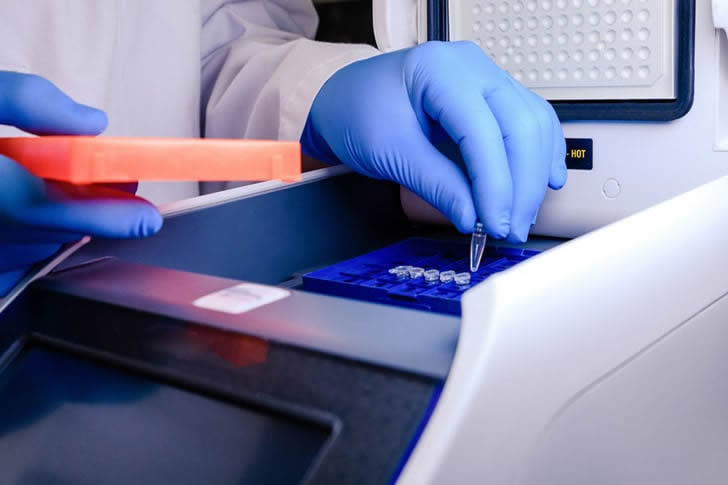Decoding the Price of a PCR Machine: From Research Labs to Diagnostics
PCR (Polymerase Chain Reaction) machines are critical tools used in research labs and diagnostics to amplify DNA sequences. The cost of PCR machines can vary significantly depending on the type, features, and intended use. In this article, we will explore what factors to consider when purchasing a PCR machine, whether for scientific research or medical diagnostics.

Why PCR Machines Are Essential
PCR machines, also known as thermal cyclers, have revolutionized molecular biology, enabling researchers and clinicians to replicate small DNA samples for analysis. These devices are used in a variety of fields including genetics, virology, and forensic science. Understanding the factors that influence the price of PCR machines can help buyers make informed decisions.
Key Factors Affecting the Price of PCR Machines
Here are the main factors that can affect the price of a PCR machine:
- Capacity: Machines with the ability to handle larger sample sizes or multiple samples simultaneously are often more expensive.
- Automation Features: Advanced models with automated processes, such as sample loading, are typically more costly.
- Speed: Higher-end machines that can complete cycles more quickly are often priced higher.
- Precision and Accuracy: More accurate machines, especially those designed for clinical diagnostics, tend to come with a premium price.
- Software and Connectivity: Machines with integrated data analysis software or connectivity features like Wi-Fi often cost more.
Top 10 PCR Machines in the U.S. (with Features and Prices)
Here’s a breakdown of some of the top-rated PCR machines available across the U.S., along with their unique features and price ranges.
| Machine Model | Brand | Capacity | Key Features | Price Range |
|---|---|---|---|---|
| Bio-Rad C1000 Touch | Bio-Rad | 96 wells | Touchscreen interface, gradient PCR | $6,000 – $8,000 |
| Applied Biosystems QuantStudio 3 | Thermo Fisher | 96 wells | Real-time PCR, user-friendly software | $10,000 – $12,000 |
| Eppendorf Mastercycler X50 | Eppendorf | 96 wells | Fast cycling, customizable temperature control | $7,500 – $9,000 |
| Roche LightCycler 96 | Roche | 96 wells | Real-time PCR, high sensitivity | $8,000 – $11,000 |
| Agilent AriaMx | Agilent | 96 wells | Real-time PCR, multiplex capabilities | $10,000 – $13,000 |
| Bioer GeneMax | Bioer | 48 wells | Compact size, high speed | $4,000 – $6,000 |
| Qiagen Rotor-Gene Q | Qiagen | 72 wells | Multiplex PCR, high precision | $9,000 – $11,000 |
| Thermo Fisher Veriti | Thermo Fisher | 96 wells | Fast cycling, large display | $6,500 – $8,500 |
| Analytik Jena qTOWER³ | Analytik Jena | 96 wells | Modular design, high flexibility | $9,000 – $12,000 |
| Techne PrimeG | Techne | 48 wells | Affordable, easy-to-use, standard PCR | $3,500 – $5,500 |
Q&A: Common Questions About Buying a PCR Machine
Q: What is the difference between regular PCR and real-time PCR machines?
A: Regular PCR machines amplify DNA for further analysis, while real-time PCR machines (also called qPCR) can monitor the amplification process in real time, making them ideal for diagnostic purposes.
Q: How long does a PCR cycle typically take?
A: The cycle time varies depending on the machine, but most PCR cycles take between 1 to 3 hours. High-speed machines can complete the process in under an hour.
Q: Is it better to buy or lease a PCR machine?
A: For long-term use, purchasing a PCR machine is usually more cost-effective. However, if you only need the machine for a short-term project, leasing may be a better option.
Case Study: PCR Machine Pricing and Features
Let’s consider the Bio-Rad C1000 Touch model, which is widely used in both research and diagnostic settings. The Bio-Rad C1000 is priced at approximately $7,000 and includes:
- A 96-well block for standard sample capacity.
- A user-friendly touchscreen interface.
- Gradient PCR capabilities, allowing for multiple temperatures across different wells.
While this model is suitable for research labs, it may not have the high-end features needed for clinical diagnostics. For such purposes, the Roche LightCycler 96, priced around $9,500, offers real-time PCR and higher sensitivity.
Chart: Price Comparison of Standard vs. Real-Time PCR Machines
| Machine Type | Average Price | Typical Use Case |
|---|---|---|
| Standard PCR Machine | $4,000 – $8,000 | Research, basic diagnostics |
| Real-Time PCR Machine | $9,000 – $13,000 | Clinical diagnostics, advanced research |
How to Choose the Right PCR Machine for Your Needs
Here are some bullet points to keep in mind when selecting a PCR machine:
- Define Your Application: Are you using the machine for research or diagnostics? Real-time PCR is necessary for clinical settings.
- Consider Capacity: Make sure the machine can handle the number of samples you need to process.
- Check Software Compatibility: Ensure the machine is compatible with your data analysis software, especially for complex applications.
- Budget: Align your needs with your budget, considering both upfront costs and long-term value.
- Warranties and Support: Look for machines that come with strong manufacturer warranties and customer support.
Final Thoughts: Decoding the Cost of a PCR Machine
The price of a PCR machine depends on several factors, including capacity, automation, speed, and precision. Whether you’re outfitting a research lab or a diagnostics center, it’s crucial to find the right balance between cost and functionality. By carefully evaluating your needs and comparing models, you can make a well-informed decision that delivers both value and performance.
References







Recent Comments